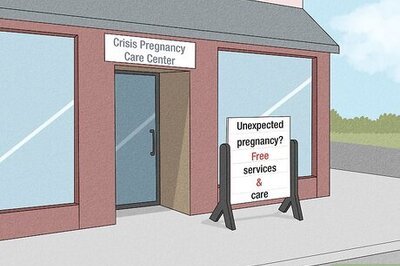
views
New Delhi: Amid US firms' allegations of patent norm violations against Indian pharma companies, leading domestic drug maker Cipla has said that "essential" medicines be made available to people at affordable rates and should not be sold under "monopoly".
"As a scientist I believe that an inventor or innovator of a new drug should be suitably rewarded, no doubt about that. But then, if the drug is essential it should not be sold under monopoly," Cipla Chairman Yusuf Hamied said.
Hamied, who was speaking here at the special screening of documentary "Fire in the Blood", said the right to live should not be dependent on the ability to pay.
"It is important to ensure that essential life saving and vital drugs are available at affordable prices not only in developing countries but worldwide," he added.
"Fire in the Blood", which was screened here by the Ministry of External Affairs, depicts mass devastation in Africa, Asia and other parts of the global South due to obstruction of low cost anti-retroviral drugs used for the treatment of HIV/AIDS.
"The right to live should not be dependent on the ability to pay, lives cannot be sacrificed at the altar of corporate profit and greed," Hamied said. The US pharma lobbies are pressuring their government to take action against India. They are alleging that Indian IPR laws discriminate against American companies. They have raised concerns regarding Swiss pharma major Novartis AG losing the legal battle for getting its blood cancer drug Glivec patented in India. They have also raised concerns over issuance of compulsory license by Indian government to a domestic firm.
Calling the pharmaceutical industry a 'healthcare custodian' of the world, Hamied offered technology transfer to produce affordable drugs to the developing countries. "I do believe that countries should take up this offer
from India to provide technology to the developing world. The multinational companies are however are not interested in this type of transfer of technology to the developing world and therefore I strongly believe that countries should look at India to provide both technology and raw materials that go into the manufacturing of healthcare products," Hamied said.
The campaign to fight HIV AIDS by the company way back in 2000 has helped to save over 10 million lives in Africa alone, he added. He said: "The AIDS initiative that Cipla pioneered has approximately saved almost 10 million lives in Africa alone. Today India produces 92 per cent of all the AIDS drugs formulations worldwide, selling them at a price of around $1 billion. The balance 8 per cent made by the MNCs is sold in the developed world for a price of over $16 billion."
The overall success of an individual or a company or an industry can't be judged by its profitability or monetary gain, it is to be judged by its capacity and capability to contribute its moral and social obligations to society, he added.













Comments
0 comment